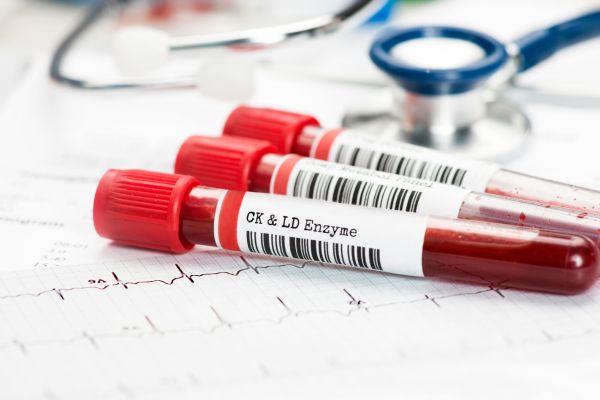When most of us think about blood tests, we imagine hospital visits or annual check-ups where doctors look for signs of illness. But here’s the thing: blood tests for nutrition and health have become one of the most powerful tools for truly understanding how our bodies work day to day. They’re not just for diagnosing problems—they’re for unlocking insights about how well you’re eating, absorbing nutrients, and even reacting to certain foods.
Let’s be real, guessing whether your body is low on iron, vitamin D, or essential fatty acids is just that—guesswork. A blood test, on the other hand, gives you data. Cold, hard, undeniable facts about what’s going on inside. And when it comes to nutrition and overall health, facts are everything.
While eating a balanced diet is essential, it doesn’t always reveal the full picture of your well-being. Blood tests for nutrition and health provide a deeper understanding of how your body is functioning by measuring key markers such as vitamin levels, mineral balance, and immune reactions. These insights help highlight deficiencies and uncover hidden causes behind common symptoms like fatigue, poor concentration, or low energy.
The real value of blood testing lies in its precision. Instead of guessing which foods or nutrients might be affecting your health, testing gives clear, actionable answers. This makes it easier to personalize your diet and lifestyle choices for lasting results.
At Smartblood, medically guided blood tests are combined with expert interpretation, so you don’t just get results—you get a roadmap to better health. Whether it’s identifying intolerances or tracking nutritional balance, the process is designed to give you confidence and clarity.
If you’re ready to move beyond guesswork, you can learn more here and discover how tailored blood testing can support your long-term wellness.
Why Blood Tests Matter in Nutrition
Food choices look simple on the surface: eat more vegetables, cut down on sugar, get enough protein. But your body might be screaming for something more specific—like magnesium, B12, or folate—without you even realizing it. This is where blood tests for nutrition and health step in.
They allow healthcare providers (and you) to see whether your body is actually using the nutrients you’re eating. Because truth be told, you can eat all the kale and salmon you want, but if your gut isn’t absorbing it or your body has higher needs than average, you’re still going to feel sluggish, moody, or plain unwell.
Common Nutrient Deficiencies Detected Through Blood Tests
One of the most practical uses of blood work is finding out what you’re missing. Some of the most common deficiencies found in people today include:
-
Iron: Low iron can leave you exhausted and foggy-headed, and many don’t realize how common this is.
-
Vitamin D: This sunshine vitamin is linked to mood, immunity, and bone health, yet deficiency is rampant worldwide.
-
Vitamin B12 and Folate: Essential for energy, nerve health, and red blood cell production.
-
Magnesium: Plays a role in muscle function, heart rhythm, and even sleep quality.
The beauty of blood tests for nutrition and health is that they pinpoint exactly which of these areas you might be struggling with—so you can take action before it snowballs into something bigger.
Blood Tests and Food Sensitivity
Here’s where things get interesting. Beyond vitamin and mineral levels, blood tests are increasingly being used to identify food sensitivities and intolerances. Unlike allergies, which usually cause obvious reactions, sensitivities can sneak under the radar. They might show up as bloating, headaches, fatigue, or skin issues days after you’ve eaten the culprit food.
By analyzing immune responses, some advanced tests can highlight which foods may be triggering low-grade inflammation in your system. Now, are these tests perfect? Not always. But when combined with elimination diets and professional guidance, they’re a huge step toward unraveling the mystery of why certain meals just don’t sit right.
The Connection Between Blood Tests and Long-Term Health
It’s not just about feeling good in the moment. Consistently running low on certain nutrients can set the stage for chronic health issues—think weak bones, cardiovascular concerns, or metabolic problems. On the flip side, knowing your numbers and correcting imbalances can help you feel more energized, recover faster from workouts, and keep your immune system strong.
The point is, blood tests for nutrition and health aren’t about being obsessive. They’re about being proactive. Instead of waiting for problems to show up, you can use data to make smarter food choices, tweak your supplement routine, and support long-term wellness.
What to Expect When Getting a Blood Test for Nutrition
If you’ve never had one of these tests done, you might be wondering what the process looks like. Typically, you’ll go to a lab or your doctor’s office for a blood draw. Some companies even offer at-home kits where you prick your finger and send off a small sample for analysis.
From there, you’ll get results that break down levels of vitamins, minerals, proteins, lipids, and sometimes markers of inflammation. The report can look a little overwhelming, but that’s where having a healthcare provider or nutrition professional makes all the difference. They can interpret the data and explain what it means for your unique situation.
How Often Should You Test?
There’s no one-size-fits-all answer. Some people check once a year as part of their annual health exam. Others—especially athletes, those with chronic conditions, or individuals making big dietary changes—may test more frequently. The goal isn’t to constantly obsess over numbers but to use them as a roadmap.
Think of it like this: you wouldn’t drive across the country without checking your gas gauge now and then. Your body deserves the same level of attention.
The Future of Personalized Nutrition
We live in a time where health is becoming increasingly personalized. What works for one person may not work for another, and blood tests are part of that revolution. Instead of following generic diet trends, you can make decisions based on your actual biology.
Imagine adjusting your meals, supplements, and lifestyle based on real-time data about your body’s needs. That’s where we’re headed, and honestly, it’s exciting.
Final Thoughts
At the end of the day, blood tests for nutrition and health are about empowerment. They take the guesswork out of eating well and give you a clear picture of what your body really needs. Whether it’s correcting a vitamin D deficiency, uncovering hidden food sensitivities, or simply staying on top of your wellness game, these tests can make a huge difference.
So, if you’ve been feeling off, or you just want to optimize how you feel and perform, consider getting your blood work done. It’s one of the smartest, most practical steps you can take for your long-term health. And let’s be real—it feels good to finally know, not just guess.







